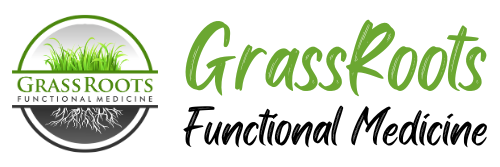You’ve probably heard a lot of buzzwords like microbiome, leaky gut, and probiotics thrown around when it comes to autoimmune disease.
But what exactly are they, how are they connected, and are they really the answers to reversing autoimmunity?
Let’s take a look.
The Microbiome & Immune System Link
Your microbiome is made up of trillions of microbes, mostly bacteria, but also fungi, viruses, and parasites. This diverse ecosystem helps you digest and absorb the nutrients from your food, regulates metabolism, and makes up nearly 80% of your immune system.
When it’s populated with mostly good bacteria, you have healthy digestion and a strong immune system that protects you against disease without going overboard and attacking your own tissues.
But when it’s depleted or you have too many of the bad players, your immune system suffers and you are at higher risk for an autoimmune condition.
3 Ways Microbiome Imbalances Trigger or Worsen Autoimmune Disease
1. Leaky Gut
When your microbiome is disrupted your gut lining is more vulnerable to damage, leading to intestinal permeability or leaky gut.
This allows bacteria, toxins, viruses, and food particles to escape your digestive tract and enter your bloodstream, where your immune system tags them as invaders and goes into attack mode.
This triggers a big spike in inflammation as your immune system works overtime to neutralize all of the threats until it becomes so stressed that it eventually misfires, attacking your own tissues and triggering autoimmunity.
2. Molecular Mimicry
Some of the runaway particles released by leaky gut can directly cause your immune system to attack you, thanks to a phenomenon called molecular mimicry.
This is when two molecules have such similar protein structures that your immune system gets confused and can’t differentiate between them. For example, gluten and your thyroid tissue can look extremely similar, which is why eating gluten is a common trigger for autoimmune thyroid conditions like Hashimoto’s and Graves’ disease.
3. Viral & Bacterial Infections
If your immune system is weakened thanks to an imbalanced or diminished microbiome it’s less able to fight off viral and bacterial infections. And many of these infections, including Epstein Barr or the mono virus, herpes type I and II, and Lyme disease can also lead to or exacerbate an autoimmune attack.
Are Probiotics the Answer?
Clearly, your microbiome is very important when it comes to autoimmunity and it goes hand in hand with another major player – leaky gut.
So it stands to reason that taking a probiotic, which is a daily dose of “good” gut bacteria, can restore a healthy microbiome and therefore healthy immune function…right?
Well, sort of. It’s true that replenishing your microbiome’s good bacteria does help! But there are a LOT of factors involved in microbiome health. Nearly every stop along your digestive tract plays a part, and there are lots of ingredients needed for optimal function.
To fully restore a balanced and thriving microbiome, we need to look at factors like saliva, chewing, HCL or stomach acid levels, digestive enzymes, vagal nerve and gallbladder function, among several others.
This requires looking at your personal health history (because every patient is different) and using the right testing to pinpoint what’s really going on, instead of continuing to guess.
From there, we can develop a personalized treatment protocol that addresses the whole picture.
If you’re ready for this type of comprehensive partnership, with a team to support you and hold you accountable, I’d love to work with you in my clinic, GrassRoots Functional Medicine.
Just check out our Adaptation Program and book your free discovery call to get started!
About the Author: Dr. Seth Osgood is a Doctor of Nursing Practice, Board Certified Family Nurse Practitioner and Institute of Functional Medicine (IFM) Certified Practitioner. Dr. Osgood received his post-graduate training in Functional Medicine through the IFM and from working with Dr. Amy Myers. He has helped people from around the world improve their health utilizing a Functional Medicine approach.
Want to work with Dr. Osgood and the GrassRoots team? Become a patient in our West Lebanon, New Hampshire Functional Medicine clinic, our Burlington, Vermont Functional Medicine clinic, or our Austin, Texas Functional Medicine clinic!






0 Comments